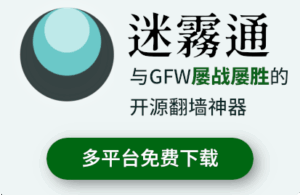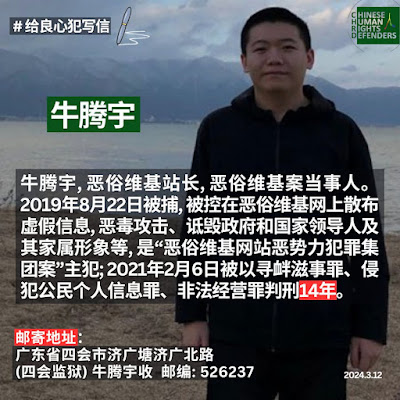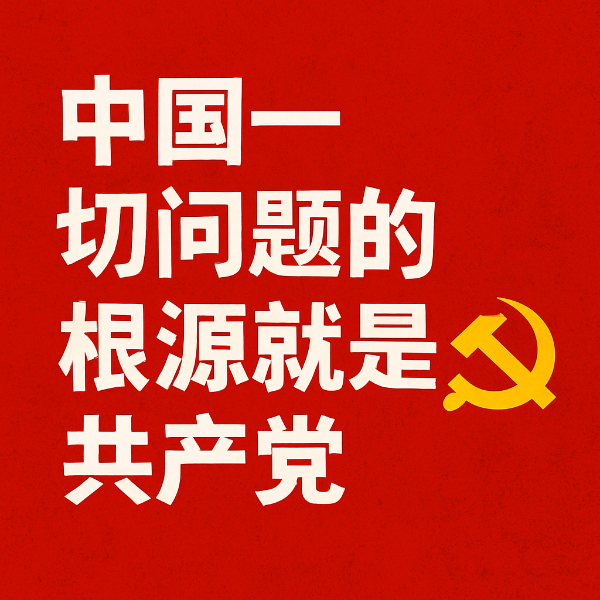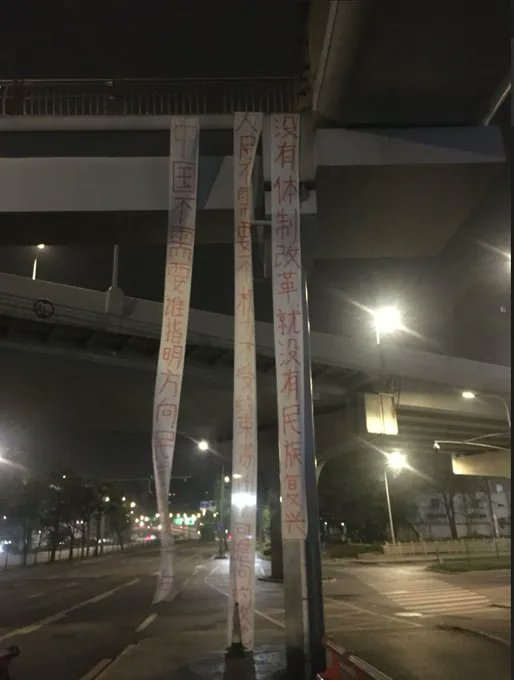作者:Keith Zhai and Chun Han Wong
习近平的新左膀右臂李强在其职业生涯中展现了其个性的两面。
习近平先生上个月任命李强为中国新的第二号人物,他在国内以亲商的实用主义者著称,不惧怕挑战共产党的统治界限。党内人士说,他也是一个忠诚的人,在需要时将有效和积极地执行中国政府的政策。
当李先生进入他的新角色时,问题是,哪一方将占主导地位?
李先生之前是习近平的亲密助手,习近平在推动压制任何潜在的反对派并巩固其权力之后,开始了他作为党魁的第三个任期。
一些中国企业家、投资者和学者说,李先生的记录表明,他可以对习近平先生产生温和的影响,促使这位中国领导人放松强硬的政策,比如他对清零政策和对科技公司的镇压,这些政策将中国推向更多的国家控制。
熟悉此事的人士说,在上海,李先生是该市的最高领导人,他与包括阿里巴巴集团控股有限公司创始人马云在内的科技大亨保持着密切的关系,并在去年习近平先生打压私营企业时为其中一些人充当了中介。他是支持在中国使用西方开发的mRNA疫苗,而不是国内开发的疫苗的少数高级官员之一。
但在关键时刻,李先生与中国领导人保持一致。在上海,他在最初尝试了一种较宽松的方法后,今年实施了中国最严厉的封锁措施之一。
在习近平先生在五年一次的党代会结束时透露了他的新领导团队后,中国的主要股指和人民币货币上周大幅下跌。许多投资者和分析师担心,这个由忠臣组成的团队将导致政策辩论减少,并提高重大政策失误的风险。在党的最高决策机构–政治局常委的四名新成员中,有三人(包括李先生)在习近平先生担任地区官员时曾与他共事。
国务院新闻办公室负责处理中国政府的新闻咨询,没有回应评论请求。
中国欧盟商会会长、长期与中国高级领导人对话的Joerg Wuttke说:”李先生对应该做什么有很好的倡议和很好的直觉,但他一次又一次地被证明是非常忠诚的,最终没有遵循自己的直觉。习近平先生 “想要一个不争吵的团队,现在把他的想法付诸行动。”
因此,Wuttke先生说,外国企业必须准备好接受 “不是面向经济而是面向稳定和控制 “的政策,以及财富分配和更大的平等。
一些与李先生交流过的人说,他们认为他与习近平先生的密切关系可以追溯到2000年代初,这意味着他可能有更多的空间来尝试新的想法,并变得比即将离任的总理李克强更有影响力,因为习近平先生在很大程度上把他排除在外。
他们说,习近平先生对李强的信任意味着习近平先生可能愿意将更多的权力下放给他,这样习近平先生就可以更专注于国家安全和意识形态等领域。
习近平先生经常对与政府有关的大小事务发表意见,但他有时似乎对试图自己做所有事情感到厌倦。他多次批评那些在决策上拖延时间或在无益的官僚事务上花太多时间的官员–这种现象被党称为 “形式主义”。
“习近平先生在2021年1月对党的最高纪律官员的一次讲话中说:”有些人只在党的中央领导层指示他们这样做时才采取行动。他抱怨说,许多官员没有足够的能力来处理复杂的问题,如果他不发布这么多指示,就不会有什么事情发生。
相比之下,李先生以能够准确理解习近平先生的模糊且有时相互矛盾的要求、将其充实为具体政策并加以实施而闻名。
李先生被提拔到党的最高层,为这位63岁的老人的迅速崛起画上了句号,他之前缺乏国家治理层面的经验。这让许多观察家感到惊讶,他们猜测李先生的职业生涯因其在上海实施 “高维封锁 “中的作用而脱轨,这在这个拥有2500万人口的城市中普遍不受欢迎。
他被任命为习近平先生的新二号人物,表明李先生有可能在明年春天的中国年度立法会议上成为总理。美国顾问罗伯特-库恩(Robert Kuhn)说,此举表明,习近平先生仍然认为鼓励创业和创新很重要,自2006年以来,他曾与中国领导人交谈并多次会见李先生。
库恩先生回忆说,在2016年的一次会议上,李先生深入讨论了创业问题。
库恩先生说,李先生谈到了如何才能有一个更好的创业环境。库恩先生说:”他认识到一个关键因素是竞争,”他补充说,李先生分享了他对 “政府如何促进一个高效、有竞争力的系统,使企业家更容易做他们的工作 “的想法。
一位在21世纪初认识李先生的中国企业家说,李先生在沿海省份浙江担任习近平的办公室主任时,似乎对每个人都很随和,包括那些职位比他低的人。该人士说,李先生在习近平先生的政府大楼里有一间小卧室,当习近平先生工作到很晚时,他经常呆在那里。
该人士说,李先生表现出一种独立思考的倾向,当他认为符合党的利益时就会承担风险,尽管他很小心地选择自己的战斗。
今年早些时候,中国开始出现 “COVID “事件,习近平坚持采取零容忍的态度,李强在上海采取了较宽容的态度,最初尝试了有针对性的封锁,同时尽可能地保持城市的开放,将经济干扰降到最低。
据熟悉其想法的人说,李先生咨询了医学专家、科学家和国际公司,并倾向于学习与Covid共处。
然而,当疫情恶化,最高领导层决定采取更严格的方法时,李先生很快就同意了。
李先生和他的政府帮助许多在该地区开展业务的公司,包括特斯拉公司,在由此产生的严酷封锁期间重新开始生产,引入闭环系统,让工人在工厂里睡觉以避免与外面的病毒接触。
特斯拉公司在其财报中说,其上海工厂在6月份实现了该公司历史上最高的汽车生产月。特斯拉没有对评论请求作出回应。
习近平先生没有批准外国科威德疫苗,也没有对这一决定作出解释。研究发现,中国的疫苗,大部分是用传统方法制造的,不如使用西方公司开发的较新的mRNA技术的疫苗有效,许多专家建议用三剂疫苗来充分保护自己免受严重症状和死亡。根据政府数据,截至10月12日,大约90%的中国人口已经接受了两剂疫苗。
据熟悉此事的人士称,李先生向医学专家和公司高管介绍了mRNA技术,并支持德国制药商BioNTech SE为其疫苗在中国大陆获得中国政府的批准而做出的努力。
BioNTech在2020年12月同意与上海复星医药集团有限公司合作,在2021年向中国交付1亿剂疫苗。该疫苗在被中央政府叫停之前,已经接近在大陆的销售。BioNTech拒绝发表评论。复星集团没有回应评论请求。
据熟悉情况的人说,李强在治理中国一些最有利于商业的地区时,也与成功的企业家保持着密切的关系,尽管中国政府对私营部门进行了打压。
这些人说,有些人向李先生寻求建议,在他们与高层领导协商问题时,李先生充当了与中国政府沟通的中间人。
其中一些人说,李先生还建议中央政府在今年早些时候放松监管行动。由于中国正在努力应对经济放缓,新的监管行动的数量有所下降,但目前还不清楚李先生是否发挥了任何重要作用。
李先生出生于1959年,他的早期职业生涯是在家乡浙江度过的。他在大学里学习农业机械化,加入了共产党,并在当地的政治等级制度中一路高升。
2002年,也就是习近平先生到浙江担任最高官员的那一年,李先生被任命为温州的党委书记,温州是浙江的一个港口城市,紧邻他的家乡,被称为一个繁荣的企业家中心。在那里,李先生倡导私营企业。
“如果没有私营经济,温州的城市发展将至少倒退一个世纪,”李先生在2003年由一家中国杂志发表的讲话中说,他赞扬温州居民愿意努力工作并承担风险。”李先生说:”政府主要应该是一个好的’服务员’,一个好的’导航员’和一个好的’裁判员’。
李先生于2004年加入省委担任秘书长,并成为习近平先生的高级助手,习近平先生于2007年调到上海。李先生继续留在浙江,最终在2010年代初成为浙江省省长。
据熟悉讨论情况的人士说,2014年,当中国在浙江筹备一个国际互联网会议时,时任该省省长的李先生提议将主办城市变成一个试验区,向西方公司开放中国的互联网,不受中国网络控制的 “长城 “阻隔。
他们说,这个想法与官方关于需要加强互联网控制的观点背道而驰,由于这个问题需要多个政府机构签字,因此在中国政府的反对下失败了。
李先生还在浙江发起了一项倡议,开发具有商业友好气候和有吸引力的物质环境的小城镇。这一模式在2015年得到了习近平先生领导的中央政府的认可,并在中国各地推广。
2016年,李先生被任命为邻近省份江苏的党委书记。到任后不久,他就安排了与包括阿里巴巴的马云在内的知名企业家会面,与当地商业界互动,鼓励投资。阿里巴巴没有对评论请求作出回应。
“当地媒体援引李先生的话说:”私营经济是一个有活力的经济,是一个使人民富裕的经济。
李先生在2016年为阿里巴巴一位高管的书写的序言中说,马云是他最喜欢交谈的人之一。
次年,李先生被提拔为党的执政的政治局委员,并被调到上海,成为该市的党委书记,这个职位被广泛认为是通往更高职位的垫脚石。
在上海,他监督来自特斯拉等公司的外国投资,特斯拉花费20亿美元在上海建厂,这是其在美国以外的第一家工厂。特斯拉被允许成为其上海工厂的唯一所有者,而所有其他外国汽车制造商都必须与中国本地公司建立合资企业。
商业界的许多人认为李先生是一位相对自由的党内领导人,他更喜欢讨论商业交易而不是政治。一位来自一家国际投资公司的高管曾与近十位中国高级官员会面,他回忆起2017年与李先生就商业扩张进行的一次会面。这位人士说,虽然当时大多数中国高级官员会以习近平先生的名言作为谈话的开始,但李先生切断了政治术语,并在整个谈话中讨论了商业。
“该人士说:”这表明他对自己与习近平先生的关系充满信心。”他不是典型的中国政治家。”
————————
https://www.wsj.com/articles/china-li-qiang-xi-jinping-11667399077
Who Is China’s New No. 2? A Business Pragmatist or a Party Loyalist?
Li Qiang’s record suggests he could serve as a moderating influence on Xi Jinping, but he has also fallen in line when it mattered
Xi Jinping’s new right-hand man, Li Qiang, has shown two sides to his personality over his career.
Mr. Li, whom Mr. Xi appointed last month as China’s new No. 2, is known inside the country as a pro-business pragmatist unafraid to push the boundaries of Communist Party rule. Party insiders say he’s also a loyalist who will implement Beijing’s policies effectively and aggressively when needed.
The question as Mr. Li steps into his new role is, which side will predominate?
Mr. Li previously served as a close aide to Mr. Xi, who begins his third term as party chief after a push to suppress any potential opposition and consolidate his power.
Some Chinese entrepreneurs, investors and scholars say Mr. Li’s record suggests he could serve as a moderating influence on Mr. Xi, nudging the Chinese leader to ease hard-line policies like his zero-tolerance approach to Covid-19 and his tech-company crackdown that have pushed China toward more state control.
In Shanghai, where he was the city’s top leader, Mr. Li maintained close relations with technology tycoons including Alibaba Group Holding Ltd. founder Jack Ma, and helped act as an intermediary for some of them when Mr. Xi cracked down on private enterprise last year, people familiar with the matter say. He was one of the few senior officials that supported using Western-developed mRNA vaccines in China, rather than domestically developed shots.
But Mr. Li has fallen in line with the Chinese leader when it mattered. In Shanghai, he imposed one of China’s harshest lockdowns this year after initially experimenting with a looser approach.
China’s main stock indexes and the yuan currency fell sharply last week after Mr. Xi revealed his new leadership team at the end of a once-in-five-years party congress. Many investors and analysts worry that the team, stacked with loyalists, will result in less policy debate and raise the risk of major policy missteps. Three of the four new members of the party’s top decision-making body, the Politburo Standing Committee, including Mr. Li, worked with Mr. Xi while he was a regional official.
The State Council Information Office, which handles press inquiries for the Chinese government, didn’t respond to a request for comment.
Mr. Li “has good initiatives and good instincts about what should be done, but again and again, he has proven to be extremely loyal, and ended up not following his own instincts,” said Joerg Wuttke, the president of the European Union Chamber of Commerce in China and a longtime interlocutor with senior Chinese leaders. Mr. Xi “wants a team that doesn’t squabble and now puts his ideas into action.”
As a result, Mr. Wuttke said, foreign businesses must get ready for policies “geared not towards the economy but towards stability and control,” as well as wealth distribution and greater equality.
Some people who have interacted with Mr. Li say they believe his close relationship with Mr. Xi, which dates back to the early 2000s, means he could have more room to experiment with new ideas and become more influential than the outgoing premier, Li Keqiang, whom Mr. Xi largely sidelined.
They say Mr. Xi’s trust in Li Qiang means Mr. Xi might be willing to delegate more powers to him, so that Mr. Xi can focus more on areas such as national security and ideology.
Mr. Xi has weighed in often on government-related matters big and small, but he has appeared to grow weary at times of trying to do everything himself. He has repeatedly criticized officials who stall on decisions or spend too much time on unproductive bureaucratic matters—a phenomenon the party describes as “formalism.”
“Some only act when the party’s central leadership has instructed them to do so,” Mr. Xi said in a speech to the party’s top disciplinary officials in January 2021. He complained that many officials aren’t competent enough to deal with complicated issues, and that if he didn’t issue so many instructions, little would get done.
Mr. Li, by contrast, is known for an ability to intuit Mr. Xi’s vague and sometimes contradictory demands, flesh them out into concrete policies and implement them.
Mr. Li’s promotion to the party’s top echelon capped a rapid rise for the 63-year-old, who lacks prior experience at the level of national governance. It surprised many observers who speculated that Mr. Li’s career had been derailed by his role in running Covid lockdowns in Shanghai, which were widely unpopular in the city of 25 million.
His appointment as Mr. Xi’s new No. 2 indicates that Mr. Li is likely to become premier at China’s annual legislative sessions next spring. The move suggests that Mr. Xi still thinks it’s important to encourage entrepreneurship and innovation, said Robert Kuhn, an American consultant who has spoken to Chinese leaders and met Mr. Li several times since 2006.
At one 2016 meeting, Mr. Li veered into in-depth discussions on entrepreneurship, Mr. Kuhn recalled.
Mr. Kuhn said that Mr. Li talked about what it takes to have a better entrepreneurial environment. “He recognized that a key factor is competition,” Mr. Kuhn said, adding that Mr. Li shared his thoughts on how “the government can facilitate an efficient, competitive system and make it easier for entrepreneurs to do what they do.”
A Chinese entrepreneur who met Mr. Li in the early 2000s, while the latter was Mr. Xi’s chief of staff in the coastal province of Zhejiang, said Mr. Li appeared to be at ease with everyone, including people whose positions ranked lower than his. Mr. Li kept a small bedroom at Mr. Xi’s government house, and stayed there often when Mr. Xi worked late, the person said.
Mr. Li has shown a tendency to think on his own and take risks when he believes it is in the party’s interests, though he is careful to pick his battles, the person said.
When Covid started flaring up in China earlier this year and Mr. Xi insisted on a zero-tolerance approach, Mr. Li adopted a lighter touch in Shanghai, initially trying targeted lockdowns while keeping as much of the city open as possible and minimizing economic disruptions.
Mr. Li consulted with medical experts, scientists and international companies, and was leaning toward learning to live with Covid, according to people familiar with his thinking.
When the outbreak worsened and the top leadership decided to take a stricter approach, however, Mr. Li quickly fell in line.
Mr. Li and his government helped many companies with operations in the area, including Tesla Inc., to restart production during the resulting harsh lockdowns by introducing closed-loop systems in which workers sleep in factories to avoid contact with the virus outside.
Tesla said its Shanghai factory achieved the highest vehicle production month in the company’s history in June in its earnings report. Tesla didn’t respond to a request for comment.
Mr. Xi hasn’t approved foreign Covid vaccines, and hasn’t provided an explanation for that decision. Studies have found that Chinese vaccines, mostly made with traditional methods, were less effective than vaccines using newer mRNA technology developed by Western companies, and many experts recommend three doses for adequate protection against severe symptoms and death. Roughly 90% of China’s population had received two doses as of Oct. 12, according to government data.
Mr. Li spoke to medical professionals and company executives about mRNA technology and backed efforts by German drugmaker BioNTech SE to get Beijing’s approval for its vaccine in mainland China, according to people familiar with the matter.
BioNTech agreed in December 2020 to work with Shanghai Fosun Pharmaceutical Group Co. to deliver 100 million doses to China in 2021. The vaccine was close to distribution in the mainland until it was halted by the central government. BioNTech declined to comment. Fosun didn’t respond to a request for comment.
Having governed some of China’s most business-friendly regions, Mr. Li has also maintained close relationships with successful entrepreneurs, despite Beijing’s crackdown on the private sector, according to people familiar with the situation.
Some sought advice from Mr. Li, who served as an intermediary with Beijing as they negotiated issues with senior leadership, the people said.
Mr. Li also suggested that the central government ease regulatory actions earlier this year, said some of the people. The number of new regulatory actions has declined as China grapples with an economic slowdown, though it’s unclear whether Mr. Li played any significant role.
Born in 1959, Mr. Li spent his early career in his native Zhejiang. He studied agricultural mechanization in college, joined the Communist Party and worked his way up the local political hierarchy.
In 2002, the year Mr. Xi arrived in Zhejiang as its top official, Mr. Li was appointed party chief of Wenzhou, a port city in Zhejiang next to his hometown and known as a thriving entrepreneurial hub. While there, Mr. Li championed private enterprise.
“Without the private economy, Wenzhou’s urban development would be set back by at least a century,” Mr. Li said in remarks published in 2003 by a Chinese magazine, in which he praised Wenzhou residents for their willingness to work hard and take risks. “The government mainly should be a good ‘attendant,’ a good ‘navigator,’ and a good ‘umpire,’ ” Mr. Li said.
Mr. Li joined the provincial party committee as its secretary-general in 2004 and became a top aide to Mr. Xi, who transferred to Shanghai in 2007. Mr. Li remained in Zhejiang, eventually rising to become Zhejiang’s governor by the early 2010s.
In 2014, when China was preparing for an international internet conference in Zhejiang, Mr. Li, then the province’s governor, proposed turning the host city into a pilot zone for opening China’s internet to Western firms, unblocked by the country’s “Great Firewall” of web controls, according to people familiar with the discussions.
The idea bucked official views on the need to tighten internet controls, and fell through over objections from Beijing as the issue required multiple government agencies to sign off, they said.
Mr. Li also started an initiative in Zhejiang to develop small towns with business-friendly climates and attractive physical environments. The model was endorsed by the central government under Mr. Xi in 2015 and expanded across China.
In 2016, Mr. Li was named party chief for the neighboring province of Jiangsu. Soon after arriving, he arranged meetings with prominent entrepreneurs, including Alibaba’s Mr. Ma, to interact with the local business community and encourage investments. Alibaba didn’t respond to a request for comment.
“The private economy is a dynamic economy and an economy that enriches the people,” Mr. Li was quoted as saying by local media.
Mr. Ma was one of his favorite people to talk to, Mr. Li said in a preface he wrote for a book by a senior Alibaba executive in 2016.
Mr. Li was promoted the following year to the party’s governing Politburo and moved to Shanghai to become the city’s party chief, a position widely considered a stepping stone to higher office.
In Shanghai, he oversaw foreign investment from companies such as Tesla, which spent $2 billion building a factory there, its first outside the U.S. Tesla was allowed to become sole owner of its Shanghai factory, while all other foreign auto makers are required to build joint ventures with local Chinese companies.
Many in the business community see Mr. Li as a relatively liberal party leader who prefers discussing commercial deals to politics. A senior executive from an international investment firm, who has met nearly a dozen senior Chinese officials, recalled a meeting he had with Mr. Li in 2017 about business expansion. While most senior Chinese officials at the time would start conversations with quotes from Mr. Xi, Mr. Li cut off political jargon and discussed business their entire conversation, said the person.
“It shows he’s confident about his relationship with Mr. Xi,” the person said. “He is not your typical Chinese politician.”








